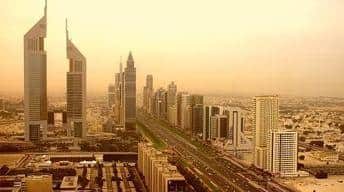How to Obtain a Private Loan as a Foreigner
The Sultanate of Oman is a Country with a population of just under 4.8 million with almost half of them being foreigners, and it is the eastern most of the GCC countries. With such a large foreign population, there will be need for clear regulations to the general banks in terms of the differences between loans to foreigners and loans to Omani nationals, and beyond this, general regulations for banks to abide by.
All issues relating to financial sector and its bodies, are monitored and managed by the Central Bank of Oman (CBO)
The country’s currency is the Omani Rial, which is managed by the country’s central bank. Other jobs of the central bank include:
-
Ensuring the country’s financial stability
-
To ensure and promote the steady growth of the development of the banking institutions within the country.
-
To manage and provide legislation for the countries banks to follow
The Central Bank is given its rule making power under The Banking Law and it also acts as the government bank
On top of this, it is the job of the central bank to send out circulars to all the banks informing them regularly of changes and rules that are being implemented. The legislation and circulars can all be found on the CBO website and the circulars are gathered under the Central Bank of Oman’s Booklet of Circulars
Steps to Obtaining a Loan
Requirements/documentation:
There will be set requirements in terms of what documentation must be provided for an individual to obtain a loan. In general the documentation includes:
-
Passport copy
-
Labour card copy
-
Salary certificate and assignment letter
-
Set quantity of bank statements
-
White background passport size photograph (one)
-
Proof of residency (paid bills etc.)
On top of this, there will be other requirements that banks will have. These may include:
-
Minimum salary requirement. Usually around 400 Omani rials.
-
Age requirement (18 – 60)
-
Amount of time in the country (amount of time with current job)
It is the job of the individual banks to ensure they give loans only to those that can pay them back. As such different banks may ask different questions to give themselves greater confidence in agreeing to provide and individual with a loan
However without the basic required documents and other aforementioned requirements, a bank will not provide a loan.
Types of loans:
In Oman, it is generally seen that any loan that is to be used for a non-commercial purpose is a personal loan. This includes many things from automobile loans to medical bills.
In general the maximum quantity for a loan that a foreigner can get is up to around 12 times an individual’s monthly salary.
Beyond this there is a maximum time limit that a loan can be given over. For foreigners, this is 5 years.
Interest:
Islamic Banks, of course do not charge interest. They do have other methods of obtaining profit though, and the amount of profit they earn from an individual’s loan is often similar to what the interest would have been had there been interest
There is a maximum interest cap on what a bank can apply an individual’s loan. As of 2013 according to the circular BM 1112, the interest rate ceiling is 6% on all personal loans, which include housing loans.
The interest rate is occasionally changed, and banks are updated as to when the changes will occur.
Within the Oman banking system, there is a very big idea of transparency. For example, banks are required to be completely forthcoming concerning the interest rates. The rates are calculated on a 365 day basis, and the potential changes that could occur during the period of the loan must be made clearly known to the consumer before the loan is issued. In the case of Islamic banks, the banks must once again ensure total clarity as to the amount of profit that shall be earned from the loan.
The contract:
Once the bank has looked into an individual’s document and considered their details, they can then accept or reject the loan. Once it has been approved, a contract between the bank and the individual can be written up. This contract would outline the start and end dates of the loan, and would also specify the monthly payment instalment values and interest rates.
For Islamic banks, they would specify the profit rates, though in general, all else concerning the attaining of a loan from an Islamic bank is the same as a conventional bank. The interest is the only differing point.
Other particulars such as a banks specific loan insurances and the loan security can also be worked out and applied at this point.
As a whole, the process of obtaining a loan in the Sultanate of Oman is a reasonably quick and easy process. There are multiple banks present within the country, and the laws and regulation are the same for all banks, and can be found on the CBO’s website under The Bank Law of 200. The primary purpose of this law is to give the power to the central bank to regulate banking practices within the country, which they do by providing regular circulars of changes they decide upon. All banks must abide by them and while there are a few differences in certain specifications banks may look for before providing a loan, the majority of the basics are the same
There is a large idea of transparency within the loans that banks provide and this allows for a highly consumer friendly system. There are also multiple banks to choose from offering varying competitive interest rates. All in all, the process is quite in line and up to date when compared to other GCC countries
Glossary
-
Private loan: these are loans that are given to private individuals (as opposed to business entities) for purposes that are specified, secured by assigning salary and end of service indemnity or any regular income from a well-defined source.
-
Loan security: a loan is secured to safeguard the bank that issues it. An asset belonging to the individual would secure the loan. In Oman, bank loans to non-nationals cannot be made against private houses.
-
Islamic Banks: Islamic banks follow Sharia Law.
-
Central Bank of Oman (CBO): this is the governing bank of Oman. It was first set up in 1974 as the country was experiencing growth in terms of it economy and its newly set up currency. Its job is to manage the other banks through the issuing of legislation. It also serves a larger purpose of managing and ensuring the steady growth of the country’s economy
-
The Banking Law: the law was originally introduced in 1974, though it was consolidated in 2000.
-
Circular: a mass message that in the case of the CBO, is sent out to all banks in order to inform them of the latest updates and regulation introductions or changes. The circulars are all collected in a booklet of circulars.
 عربي
عربي
 English
English Русский
Русский 官话
官话 português
português
 Türk
Türk 





















